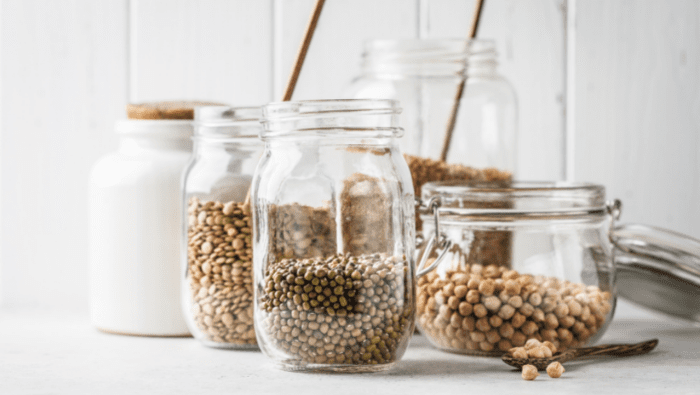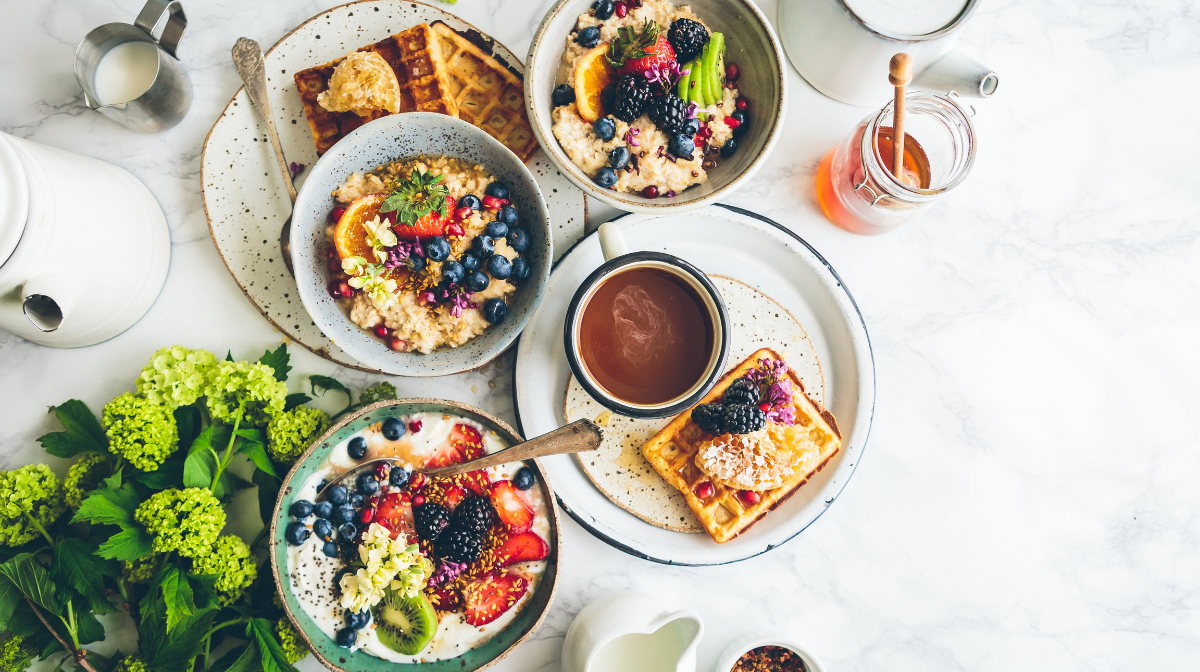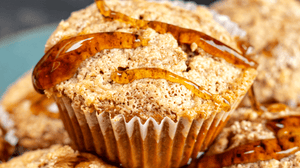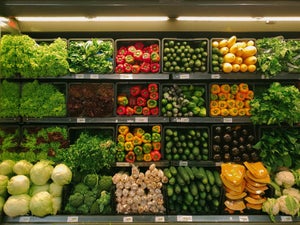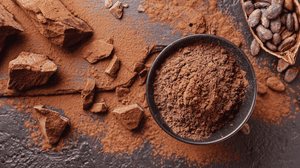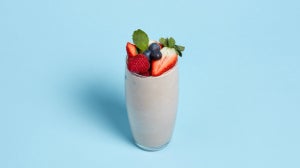
‘How do vegans get protein?’ is a question that is still asked pretty often, despite the rise in popularity of plant-based diets. The majority of people are not protein deficient, and everyday staples such as oats, peanut butter or broccoli all contain a minimum of 3-4g of protein. This can quickly add up and contribute towards daily protein needs.
- What is a vegan diet?
- Why do we need protein?
- How much protein should I eat?
- How do vegans get protein?
- FAQs
What Is A Vegan Diet?
A vegan diet is one that contains no animal products - this means no dairy, eggs, fish, meat or honey. Some vegans also consider lifestyle as well as diet, meaning they don’t wear fabrics derived from animals, such as leather or suede.
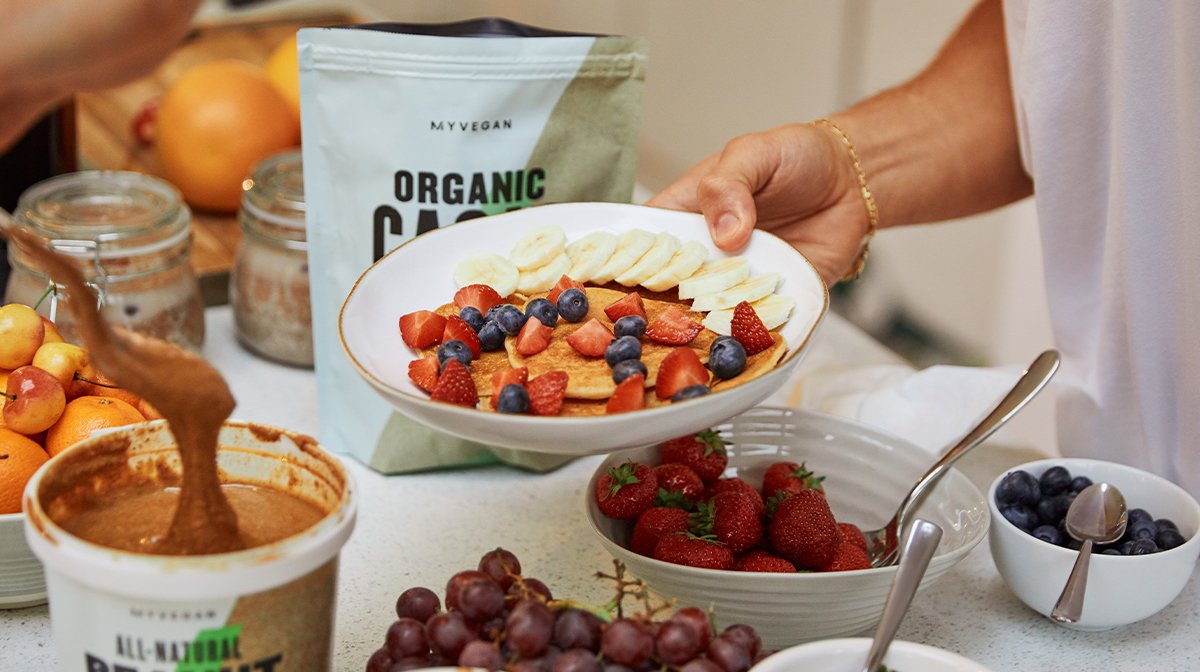
Vegan Shopping List: A Guide For Beginners
Substitute your shopping with these cupboard essentials.
Why Do We Need Protein?
Protein is formed from small molecules called amino acids which are the building blocks for cell repair and function. Many people associate protein with athletes however, protein has many important functions aside from building muscle.
How Much Protein Should I Eat?
The recommended protein intake is 0.8-1g per kg of body weight. However, vegan sources of protein can sometimes be harder to absorb in the gut, so vegans are generally advised to eat above the minimum requirements. Protein needs are generally higher in people who exercise regularly. Depending on training type, it is recommended that active people have a protein intake of 1.2-2g per kg of body weight.

How Do Vegans Get Protein?
Protein is found in a whole variety of foods; most vegan sources of protein come in foods that also contain carbohydrates such as beans and legumes. Wholegrain products often contain protein and can be combined with another protein source to form a ‘complete’ protein.Vegan Protein Sources
Here are 12 different food sources of vegan protein, some of which might be surprising!
Tofu
This is one of the highest sources of protein in a vegan diet and is also incredibly versatile. Most savoury dishes use firm or extra-firm tofu due to its meaty texture. However, silken tofu can be used to give desserts or smoothies a protein boost without affecting the flavour of the final dish. Tofu has around 13g of protein per 100g.
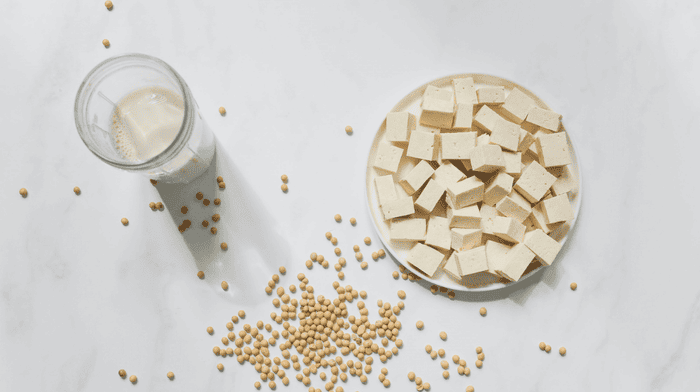
Edamame beans
Like tofu, edamame beans are a form of soya protein. These little beans are delicious and added to salad, noodles or stir-fries. These are good sources of protein, containing around 12g of protein per 100g. These are often easier to digest than other beans and legumes.
Oats
While oats may not traditionally be associated with being high in protein, a typical 50g portion of rolled or instant oats is around 5g of protein. Add in a drizzle of nut butter with ½ - 1 scoop of protein powder and you have a protein-filled breakfast. Top with fresh berries, bananas, or any of your favourite toppings.Meat alternatives
If you are transitioning to a more plant based diet and are used to build a meal around meat, vegan meat alternatives can be really useful. Vegan sausage alternatives can contain anything from 8-18g of protein. However, it is important to remember these are often highly processed, so moderation is key.Chickpeas
An absolute staple in vegan diets, chickpeas can be used to bulk up soups or stews, added to salads, or blended with tahini and olive oil to make a smooth and creamy hummus dip. Tinned chickpeas contain approximately 7.2g of protein per 100g.
Nuts & nut butter
Vegan diets can often be lower in fat, so it’s important to include sources of healthy fats such as nuts, nuts butter and avocados. One portion of peanut butter is usually two tablespoons, which would contain 4g of protein. Make sure the peanut butter is as close to 100% peanuts as possible, since more processed peanut butter contains added sugar and oil. Try peanut butter drizzled over porridge, mixed into sauces, or spread on toast.Mushrooms
When it comes to mushrooms, most people either love or hate them. Whilst these aren’t super high protein food, they contain almost 2g per 100g of raw mushroom. A typical recipe for mushrooms on toast would call for 200-250g of mushrooms, which adds up to 4g of protein.
Broccoli
As well as protein, broccoli contains a variety of different micronutrients including iron, calcium and vitamin C. 100g of broccoli contains between 3-4g of protein.
A small portion of broccoli is around 80g, and easy way to add both greens and protein to a meal.
Hemp seedsThese tiny seeds are a healthy source of fat, as well as containing protein, omega-6 and omega-3. These soft seeds can be added to smoothies or used as a topping for oats or salads. Hemp seeds contain a whopping 31g of protein per 100g and a 1 tablespoon portion contains almost 5g of protein.Seitan
A food that has grown in popularity over the year, seitan is often used as a vegan meat alternative. You can find this in most supermarkets or health food stores, and can even be made at home. 100g of seitan contains around 25g of protein, although a typical serving would usually be 25-30g.
Quinoa
Usually eaten as a carbohydrate source, quinoa is actually a seed. Quinoa contains 4.8g of protein per 100g, which is almost double the protein compared to basmati rice or white potatoes.Quinoa is also naturally gluten-free so is great for those with food intolerances or allergies.
Lentils
This is the food that is most commonly associated with vegan and plant-based diets, although lentil recipes have come a long way since they first gained popularity in the ’60s!100g of dried red lentils contains over 8g of protein whilst tinned lentils tend to contain slightly less. Lentils are excellent for use as a base for sauces or curries and are an easy-to-cook, vegan alternative to beef mince.
Talk To Your Nutritionist
This article is for educational purposes only and should not be used as a substitute for medical advice. If you have any health concerns then please contact your GP.
Take Home Message
There are so many protein sources available for vegans, and it’s definitely possible to get enough protein on a vegan diet. Need some high-protein recipe inspiration? Check out all our plant-based recipes here: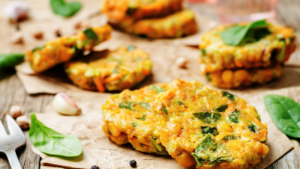
FAQs
Do vegans actually get enough protein?
There are many vegan protein sources available. Most people will be able to get enough protein for food sources alone however, if you want to boost your protein intake then supplementation may be beneficial.
What is the best way for a vegan to get protein?
Eating a balanced diet and aiming for protein in each meal is the best way to make sure the protein goals are met. Protein as part of breakfast may not be something usually thought about however, oats and nut butter are both good sources of protein - that’s your morning oats sorted!
What vegan foods are high in protein?
Vegan protein sources highest in protein include soy-based products such as tofu, soy yoghurt or edamame beans. Other high protein sources include seitan, beans and legumes.
How much protein do vegans actually need?
The minimum daily recommended protein intake is 0.8-1g of protein per kg of body weight. However, vegans generally need slightly more, as do athletes and other active people.
Should vegans drink protein shakes?
Protein shakes are not a necessity for everyone, but if your protein needs are higher or you are struggling to meet your protein requirements then supplementation may be useful. Vegan protein powders come from a several different plant-based sources and are available in a huge range of flavours - from classic chocolate and strawberry, to cereal milk and speculoos!Can you build muscle if you are vegan?
If your goal is to build muscle, then protein intake will need to be higher; 1.8-2g of protein per/kg of body weight is recommended for weight training. Whilst protein shakes aren’t necessary, they may be a helpful addition.
- Food Standards Agency. McCance and Widdowson’s – the composition of food, sixth summary edition; Royal Society of Chemistry; Cambridge; 2002
- British Nutrition Foundation. Protein [online]. British Nutrition Foundation. 2021. Available from: https://www.nutrition.org.uk/healthy-sustainable-diets/protein/?level=Health%20professional

